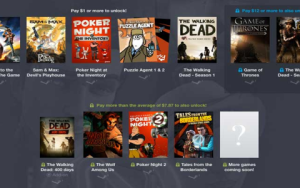crawl game review
So today, I wanted to mess around with grabbing some game reviews from a website. You know, just to see what people are saying about different games and maybe get some insights. It was a fun little project, and I thought I’d share how I did it.
Getting Started
First things first, I needed to figure out which website I was going to pull the reviews from. There are a bunch of sites out there, but I decided to go with one that had a good mix of games and a pretty simple layout. Once I picked my target, I started looking at how the site was structured.
Inspecting the Website
I opened up the site and started browsing through some game review pages. Using my browser’s developer tools, I took a look at the HTML to see how the reviews were laid out. I noticed that each review was inside a specific HTML tag, usually a <div> or <p> tag, with a unique class or ID. This was good news, it meant I could easily target these elements to grab the reviews.
Writing the Code
With the website structure in mind, I started writing some code. I used Python because it’s pretty straightforward for this kind of thing. The main libraries I used were:
- Requests: To fetch the HTML content of the pages.
- Beautiful Soup: To parse the HTML and extract the data I needed.
Here’s a simple breakdown of what my code did:

-
Fetch the Page: I used to grab the HTML content of a game’s review page.
-
Parse the HTML: I created a BeautifulSoup object with the HTML content.
-
Find the Reviews: I used *_all() to find all the elements containing the reviews, based on their tag and class or ID.
-
Extract the Text: For each review element, I used .text to get the actual review text.
-
Store the Reviews: I saved the extracted reviews in a list. I also printed them to my console to see the results in real-time.
Dealing with Pagination
Many review sites have multiple pages of reviews. To handle this, I needed to find the “Next Page” button or link and figure out how the URL changed from page to page. Usually, there’s a page number parameter in the URL. I added a loop to my code to go through each page:
-
Find the “Next Page” Link: I used BeautifulSoup to find the link to the next page.
-
Update the URL: I modified the URL to point to the next page.

-
Repeat: I repeated the fetching and parsing steps for each page until there were no more pages.
Storing the Data
After collecting all the reviews, I needed to store them somewhere. For this project, I just saved them to a simple text file. Each review was on a new line, making it easy to read. I used Python’s built-in file operations:
with open('game_*', 'w', encoding='utf-8') as f:
for review in reviews:
*(review + 'n')
Conclusion
And that’s pretty much it! I ended up with a text file full of game reviews. It was a fun exercise to go through, and it’s always satisfying to see your code pulling in real data. If you want to do something similar, just remember to be respectful of the website’s terms of service and *. Don’t overload their servers with requests, and maybe add some delays in your code to be polite.
This was a simple project, but you can expand on it in many ways. For example, you could analyze the sentiment of the reviews, categorize them by game or genre, or even build a database. The possibilities are endless. Happy coding!







